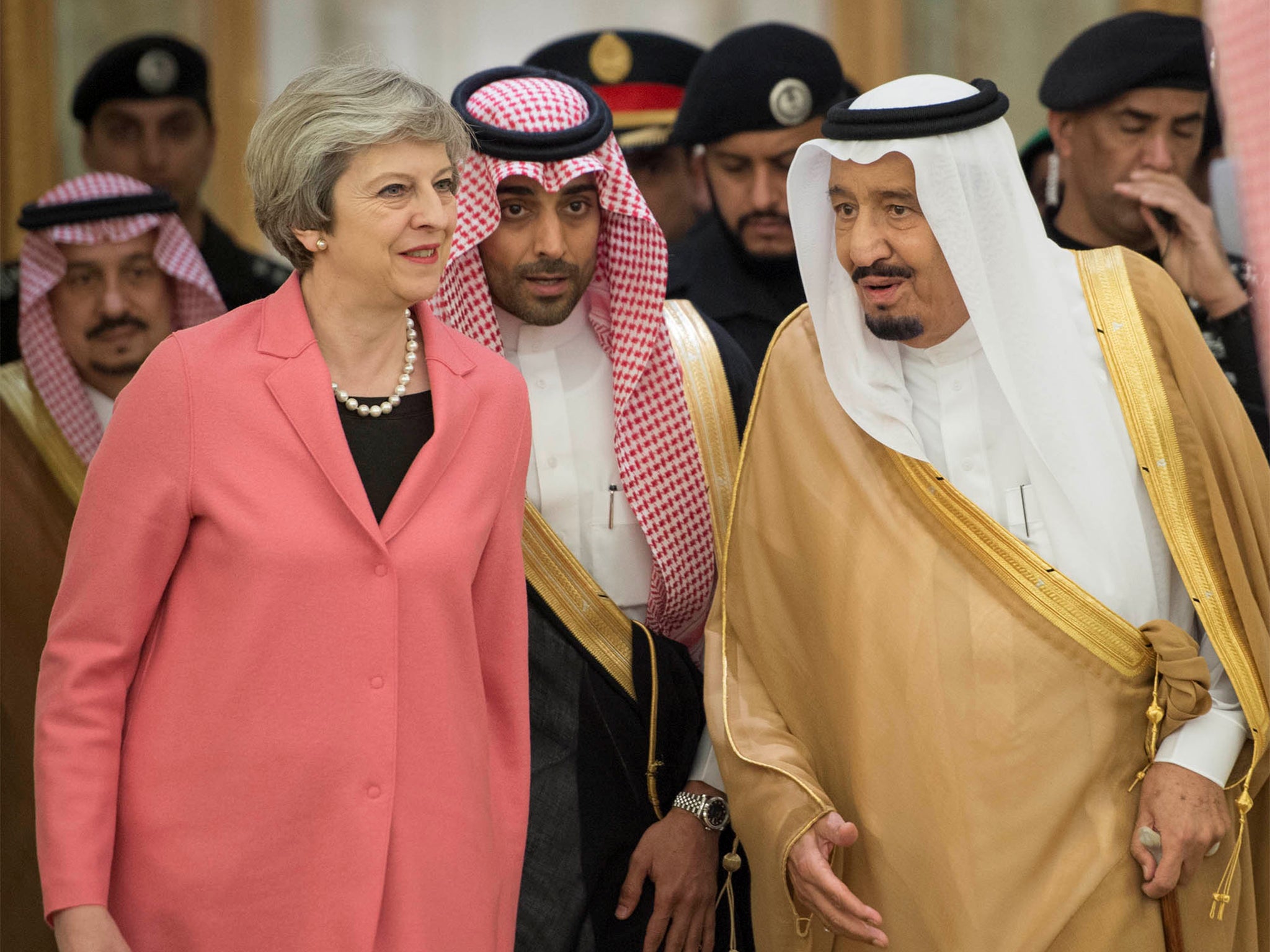Saudi Arabian authorities ‘still tolerate religious hate speech’, report finds
Officials in Riyadh are not doing enough to stamp out language that discriminates against Shia and Sufi worshippers as well as non-Muslims, new Human Rights Watch study says

Your support helps us to tell the story
From reproductive rights to climate change to Big Tech, The Independent is on the ground when the story is developing. Whether it's investigating the financials of Elon Musk's pro-Trump PAC or producing our latest documentary, 'The A Word', which shines a light on the American women fighting for reproductive rights, we know how important it is to parse out the facts from the messaging.
At such a critical moment in US history, we need reporters on the ground. Your donation allows us to keep sending journalists to speak to both sides of the story.
The Independent is trusted by Americans across the entire political spectrum. And unlike many other quality news outlets, we choose not to lock Americans out of our reporting and analysis with paywalls. We believe quality journalism should be available to everyone, paid for by those who can afford it.
Your support makes all the difference.The Saudi Arabian government is too tolerant of hate speech and even incitement directed at minority groups in the Kingdom, a new report from Human Rights Watch (HRW) has found.
Despite recent efforts at reform and the condemnation of attacks made on Shia citizens, state-affiliated clerics and government agencies are using language which is derogatory towards the country’s Shia and Sufi minorities and non-Muslims, the watchdog said on Tuesday. Sometimes the language reaches the level of hate speech and even incitement to violence, the New York-based organisation said.
The report - titled “They Are Not Our Brothers: Hate Speech by Saudi Officials” - also found that public school textbooks contain language that “that discriminates against other forms of worship”, and Shia citizens face discrimination in the legal system.
Shia and Sufi Muslims who do not adhere to the tenets of the extremely conservative Wahabist state-endorsed version of Sunni Islam are a “prime target of Saudi-sponsored hate speech and intolerant rhetoric,” the 64-page-long study found. Shia Muslims are often referred to as the derogatory ”rafida“ or ”rawafid“ by clerics with millions of followers on social media.
The school curriculum does not mention Shias by name, but “uses veiled language to stigmatise Shiite religious practices” - for example, criticising visiting graves and shrines to venerate important people, which are common practices among Shias. Saudi textbooks describe these practices as a form of polytheism, HRW said.
Calls for equality for Saudi Arabia’s Shia citizens reached fever pitch during Arab Spring protests in 2011. Since then, the country’s mainly Shia East has seen periodic bouts of unrest including car bombs and attacks on the security services.
Riyadh’s newly-established Department of Public Prosecution has powers to charge offenders who are accused of spreading hate speech and inciting violence on social media, including anyone who attempts to “foment sectarian violence” - although rights activists have expressed concerning the far-reaching new laws could be used to target anti-government protesters too.
Anti-Shia rhetoric spiked in 2016, after the Sunni-led Kingdom and its regional rival, Shia Iran, severed ties. Crown Prince Mohammed Bin Salman has recently claimed that Iran is “based on an extremist ideology” and “seeks to control the Islamic world”, ruling out a dialogue with the country.
The cold war between Tehran and Riyadh has played out in proxy wars in Syria, Iraq, and Yemen, and has also fuelled tensions between Sunnis and Shia citizens in Bahrain and Lebanon.
The Associated Press contributed to this report
Join our commenting forum
Join thought-provoking conversations, follow other Independent readers and see their replies
Comments